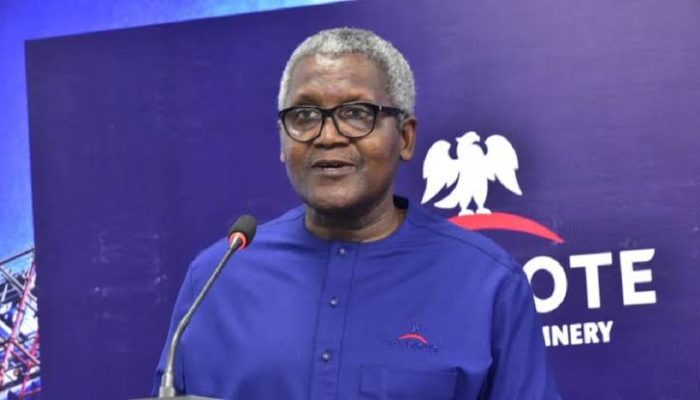In a surprising move that has sparked considerable discussion within the energy sector, the Nigerian government has decided to export crude oil to Indonesia, effectively bypassing the newly established Dangote Refinery. This decision raises questions about the strategic direction of Nigeria’s oil and gas policies and the potential impacts on the local economy.
Background: The Dangote Refinery
The Dangote Refinery, owned by Aliko Dangote, Africa’s richest man, is poised to be one of the largest single-train refineries in the world. Located in the Lekki Free Zone near Lagos, it is designed to process 650,000 barrels of crude oil per day. The refinery is expected to reduce Nigeria’s dependency on imported refined petroleum products, create jobs, and stabilize the local fuel market. Given these substantial benefits, many anticipated that the Nigerian government would prioritize local crude oil supply to this facility.
The Indonesian Deal
Contrary to these expectations, the Nigerian National Petroleum Corporation (NNPC) has signed an agreement to supply crude oil to Indonesia. The deal, which aims to strengthen bilateral trade relations between Nigeria and Indonesia, is seen as a strategic effort to expand Nigeria’s oil market beyond traditional partners.
Reasons Behind the Decision:
Several factors may have influenced this unexpected move:
Diversification of Export Markets: By exporting crude oil to Indonesia, Nigeria is reducing its reliance on a limited number of trading partners. Diversifying export markets can enhance economic stability and reduce the risks associated with fluctuating demand from specific countries.
Immediate Revenue Needs: The Nigerian government may be prioritizing immediate revenue from crude oil sales. Exporting crude oil can bring in foreign exchange more quickly compared to selling to local refineries, which might involve longer processing times and lower immediate returns.
Strategic International Relations: Strengthening ties with Indonesia could have broader geopolitical benefits. As a major player in Southeast Asia, Indonesia offers Nigeria an entry point into a region with growing energy demands.
Implications for the Dangote Refinery
The decision to export crude oil to Indonesia instead of supplying it to the Dangote Refinery has several potential implications:
Operational Challenges: Without a guaranteed supply of crude oil from the government, the Dangote Refinery might face challenges in sourcing adequate feedstock. This could delay its operational targets and reduce its capacity to impact the local market as initially envisioned.
- Economic Impact: The refinery was expected to create thousands of jobs and stimulate local economic growth. Any operational delays could slow down these economic benefits, affecting not just employment but also local businesses connected to the refinery’s supply chain.
- Market Dynamics: The refinery was anticipated to lower the cost of petroleum products in Nigeria by reducing the need for imports. If the refinery struggles to secure crude oil, the local market may continue to experience price volatility and dependency on imports.
Reactions from Stakeholders
The decision has elicited mixed reactions from various stakeholders:
- Industry Experts: Some industry analysts argue that the government’s move is a short-term strategy focused on immediate revenue generation. They caution that neglecting local refining capabilities might undermine long-term economic stability.
- Local Economists: Economists advocating for self-sufficiency have expressed concerns. They emphasize the importance of supporting local industries, which can provide more sustainable economic benefits compared to exporting raw materials.
- International Observers: On the international stage, the move is seen as a pragmatic approach to strengthening Nigeria’s global trade relations. However, it also raises questions about Nigeria’s commitment to enhancing its domestic industrial capabilities.
The Path Forward
While the Nigerian government’s decision to export crude oil to Indonesia might be driven by immediate economic considerations, it is crucial to balance these with the long-term vision of economic self-sufficiency and industrial growth. The Dangote Refinery represents a significant investment in Nigeria’s future, and ensuring its success should be a priority.
To navigate this complex situation, the Nigerian government might consider a dual approach:
- Strategic Allocation: Allocate a portion of crude oil to international markets for immediate revenue while reserving a significant supply for local refineries like Dangote. This balanced strategy can support both short-term financial needs and long-term industrial growth.
- Policy Support: Implement policies that encourage local refining and provide incentives for the development of the domestic oil and gas sector. This includes tax breaks, subsidies, and infrastructural support to ensure local refineries operate at optimal capacity.
Conclusion
The Nigerian government’s decision to export crude oil to Indonesia, bypassing the Dangote Refinery, highlights the complex dynamics of balancing immediate economic needs with long-term strategic goals. As Nigeria continues to navigate its path in the global energy market, it is essential to foster a robust local refining industry that can provide sustainable economic benefits and reduce dependency on foreign markets. Balancing these interests will be key to ensuring Nigeria’s economic stability and growth in the years to come.




